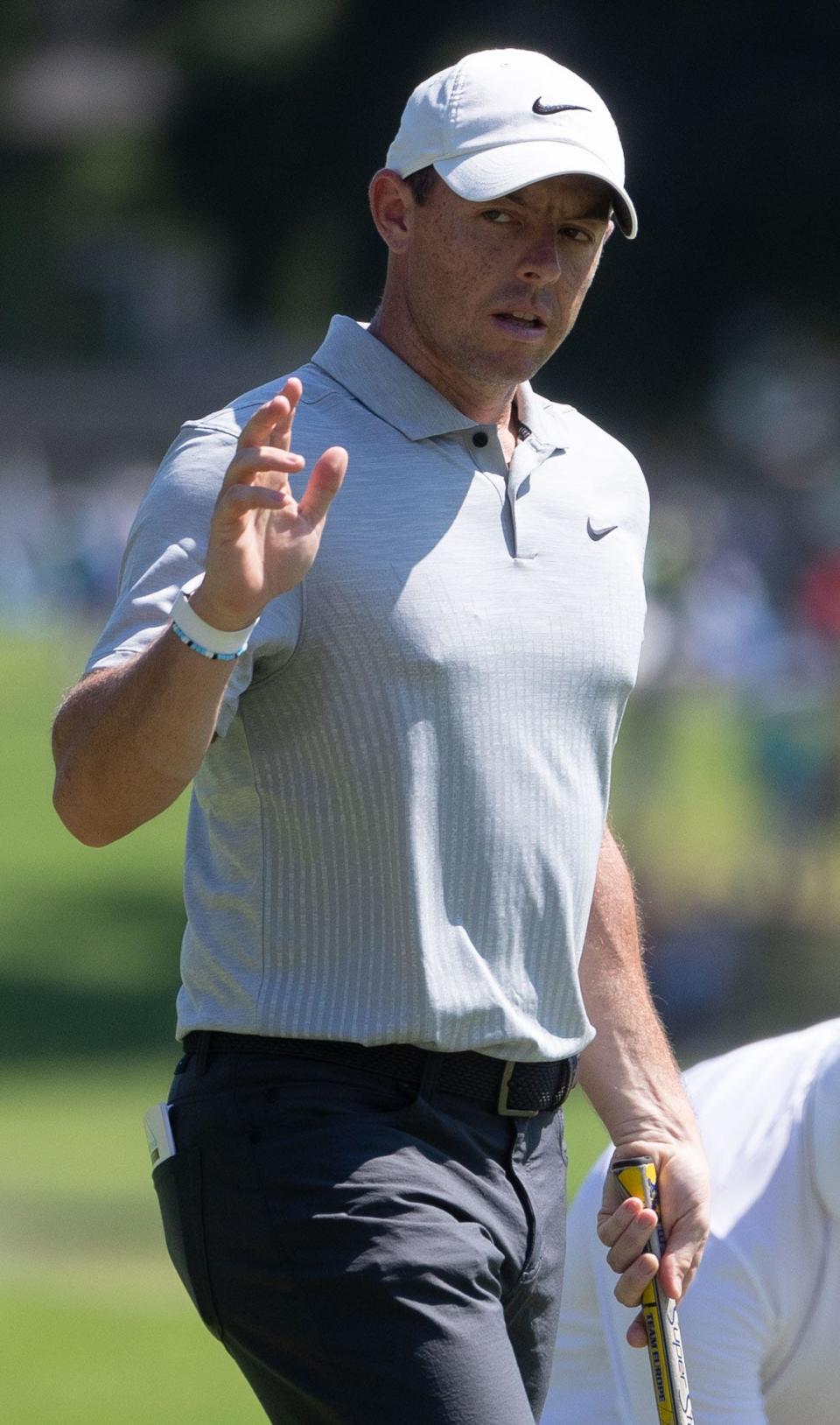When Jack Sammons got the text message, two words came to mind first: “Fake news.”
It couldn’t be that the PGA Tour had joined forces with the Saudi-backed LIV Golf Series, the renegade circuit that had upended and divided the sport so bitterly. He would have heard something like that was brewing, right? He is the general chairman of the FedEx St. Jude Championship, after all.
But then he turned on CNBC, and there sat PGA commissioner Jay Monahan and Yassir Al-Rumayyan, the governor of Saudi Arabia’s Public Investment Fund that will inject millions and (over time) billions of dollars into this joint venture.
Sammons’ reaction?
“Wow,” he said Tuesday morning, still trying to digest the news.
“I have no idea how any of this came together, and I’m hopeful that it’s good for Memphis and good for the kids at St. Jude. At the end of the day, my job is to try to raise as much money as we can for the kids. I’m the eternal optimist and I’m going to assume this is better for Memphis.”

We sure hope so because every other part of this development is pretty icky.
We hope this simply means Memphis fan favorites like Brooks Koepka, Dustin Johnson and Phil Mickelson can eventually play at TPC Southwind again.
We hope the involvement of Saudi Arabian money – and the global ambitions expressed in Tuesday’s announcement – doesn’t lead to Memphis losing the status it got in recent years thanks to FedEx’s sponsorship of the PGA Tour.
We hope FedEx is cool with all of this. The Memphis-based shipping giant did not immediately respond to a request for comment on the matter.
Because it’s not easy to reconcile how hypocritical the PGA Tour looks today.
FROM 2022 TOURNAMENT: How an injured coach from Bartlett helped Will Zalatoris win FedEx St. Jude Championship
MORE: A Chilean flag for Joaquin Niemann, a St. Jude connection, and a memory made through golf
After years of claiming the moral high ground and pointing out to anyone and everyone the issues of taking money from the Saudi government given its human rights records, after years of convincing top golfers like Rory McIlroy, Jon Rahm and Justin Thomas to be champions of the cause, the PGA Tour commissioner did exactly what he said the Tour wouldn’t do. He seemingly did so in a unilateral fashion, with few stakeholders involved in the negotiations.
Players were shocked. Agents were shocked. Reporters were shocked. Those who run PGA Tour events were shocked. The entire golf universe was shocked. Nobody saw this coming now, not with how adversarial the two factions had become with each other. Nobody is quite sure what it means for the structure of the sport, either.
Will this simply be the PGA Tour, jacked up with Saudi Arabian money? Will this turn into some kind of world tour? Will a portion of the schedule include LIV Golf events? Will it even be called the PGA Tour anymore? Those sorts of details weren’t publicly available when Tuesday’s news broke.
The Tour has been holding a tournament here since 1958. It has raised millions of dollars for St. Jude Children’s Research Hospital. It’s important to the fabric of the local sports landscape here given its history as the first major professional sport to come to the city year after year.
So the state of golf, and even the potential sportswashing implications brought on by Saudi involvement, has always resonated less with me than how they could affect the state of the annual PGA Tour event in Memphis.
The United States government has had a strategic partnership with Saudi Arabia going back eight decades, but golfers and golf fans were being villainized for not taking a stance the American government has yet to take. It’s uncomfortable to consider that Saudi Arabia may have just bought major professional golf. But it already bought into Formula One racing and Newcastle United of the English Premier League. It could perhaps soon buy Lionel Messi. Until we stopped buying oil from Saudi Arabia, its influence (and money) arriving stateside in the sports world was almost inevitable.
With golfers like Koepka, Johnson, Mickelson and Bryson DeChambeau all moving over to the LIV Golf Series (for gobs and gobs of money), it meant they could no longer play in Memphis. That was a serious bummer last year, even as the city hosted the FedEx Cup playoffs for the first time. You could feel their absence and, frankly, the contentiousness between the PGA Tour and LIV Golf dominated the national conversation during tournament week.
The upside of Tuesday’s development should be that guys like Johnson and Koepka will be back in Memphis, perhaps as soon as next year.
“The key card in our hand is that FedEx is the largest sponsor of the PGA Tour and I think their sponsorship got enhanced today,” Sammons said.
In that way, nothing changed Tuesday for Memphis. The success of this tournament has depended on FedEx’s involvement for years, and it will depend on FedEx remaining involved with whatever the PGA Tour is going to call itself going forward.
The flip side, though, is that golf doesn’t necessarily need FedEx’s money nearly as much now that its commissioner is sitting shoulder-to-shoulder with the Saudi Arabian government.
It’s hard to believe they’ve played TPC Southwind before.
You can reach Commercial Appeal columnist Mark Giannotto via email at [email protected] and follow him on Twitter: @mgiannotto
This article originally appeared on Memphis Commercial Appeal: PGA Tour-LIV merger should be good for Memphis. What if it’s worse?